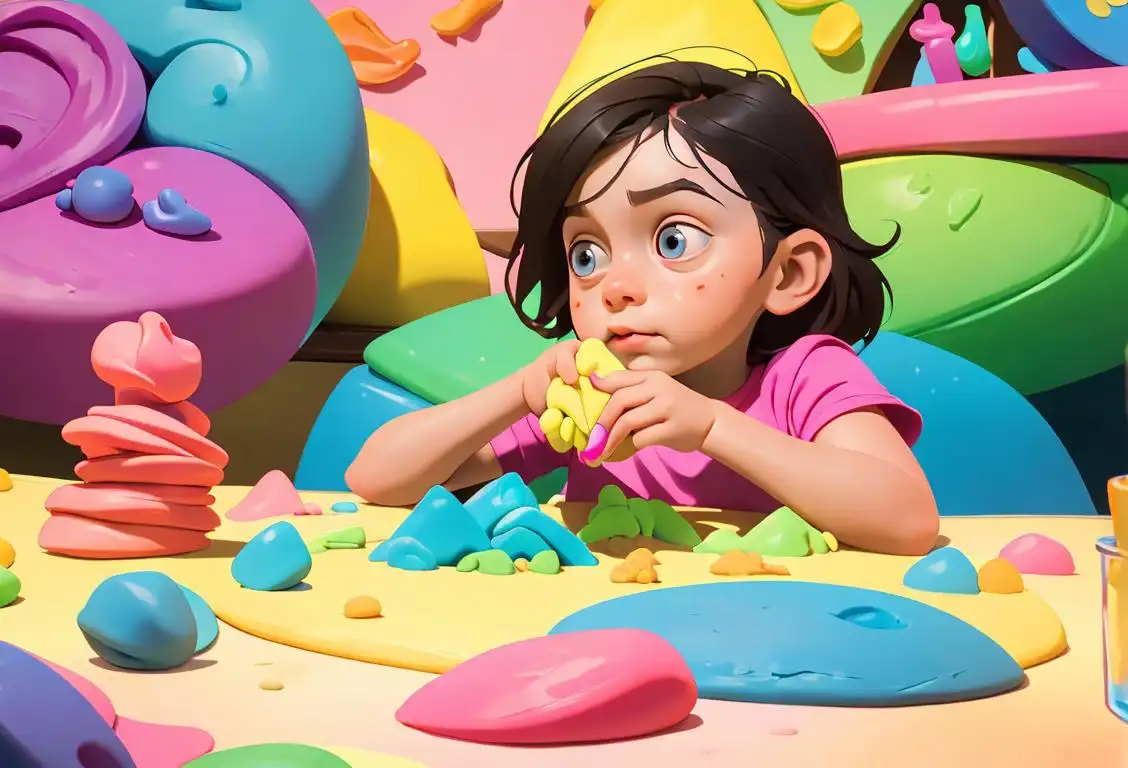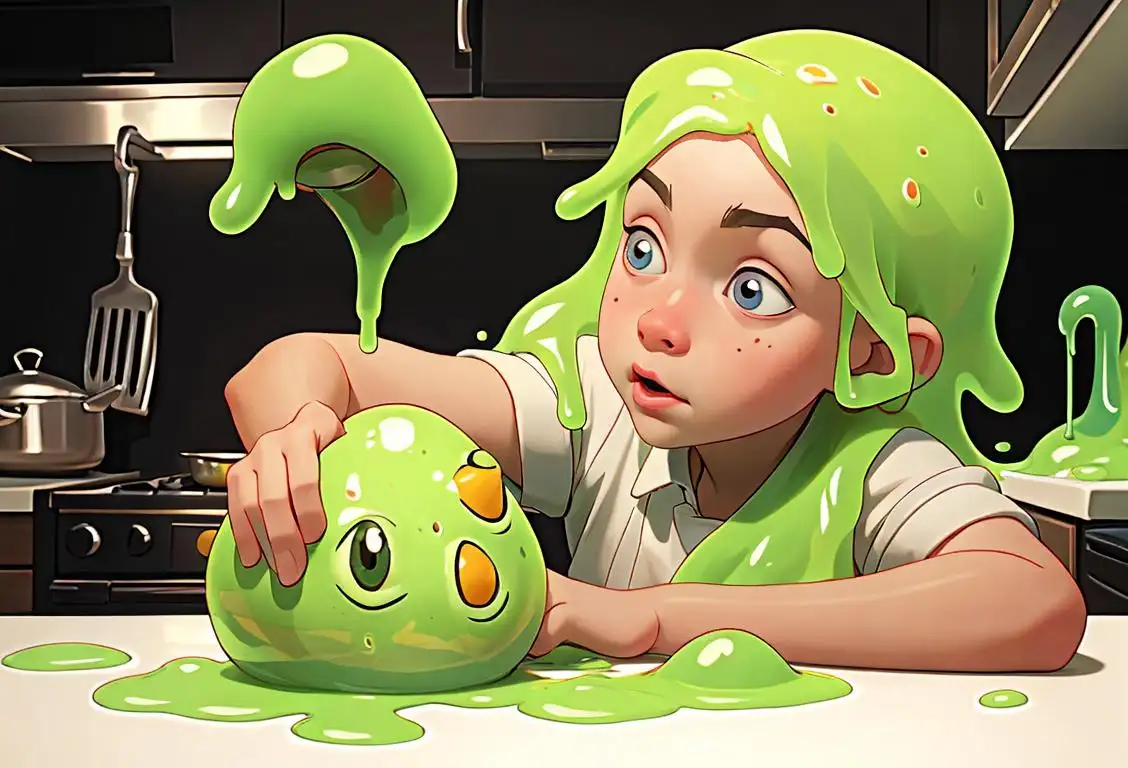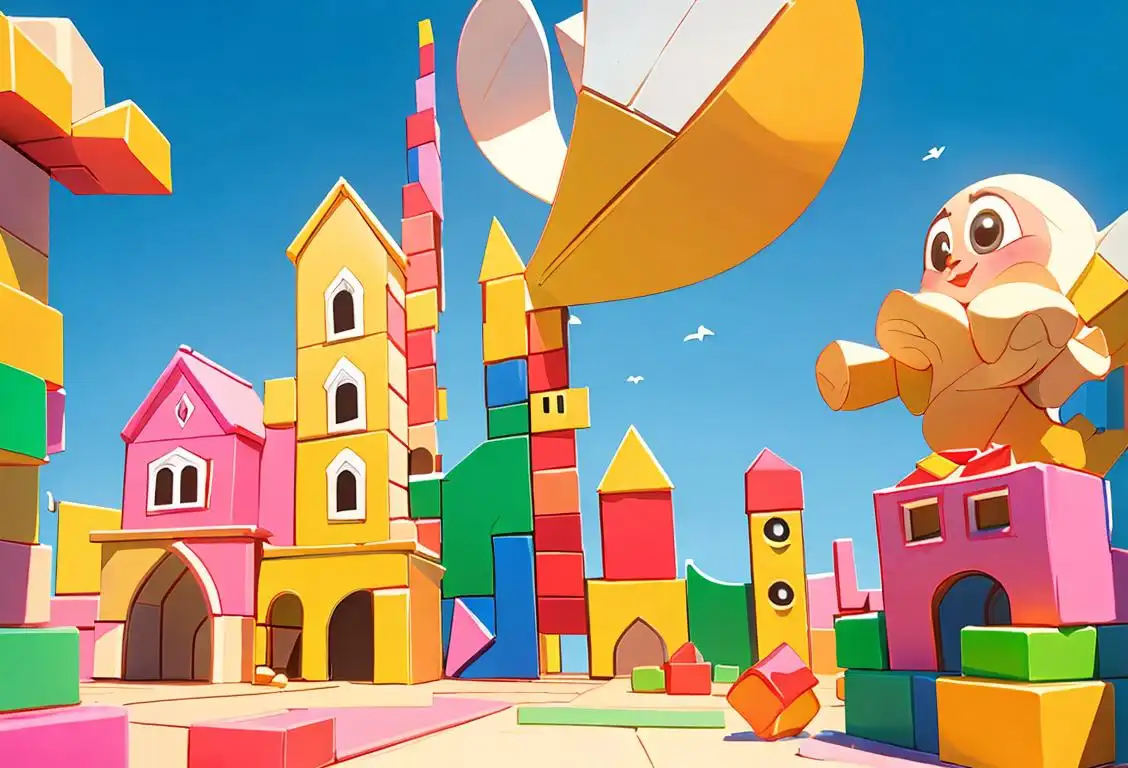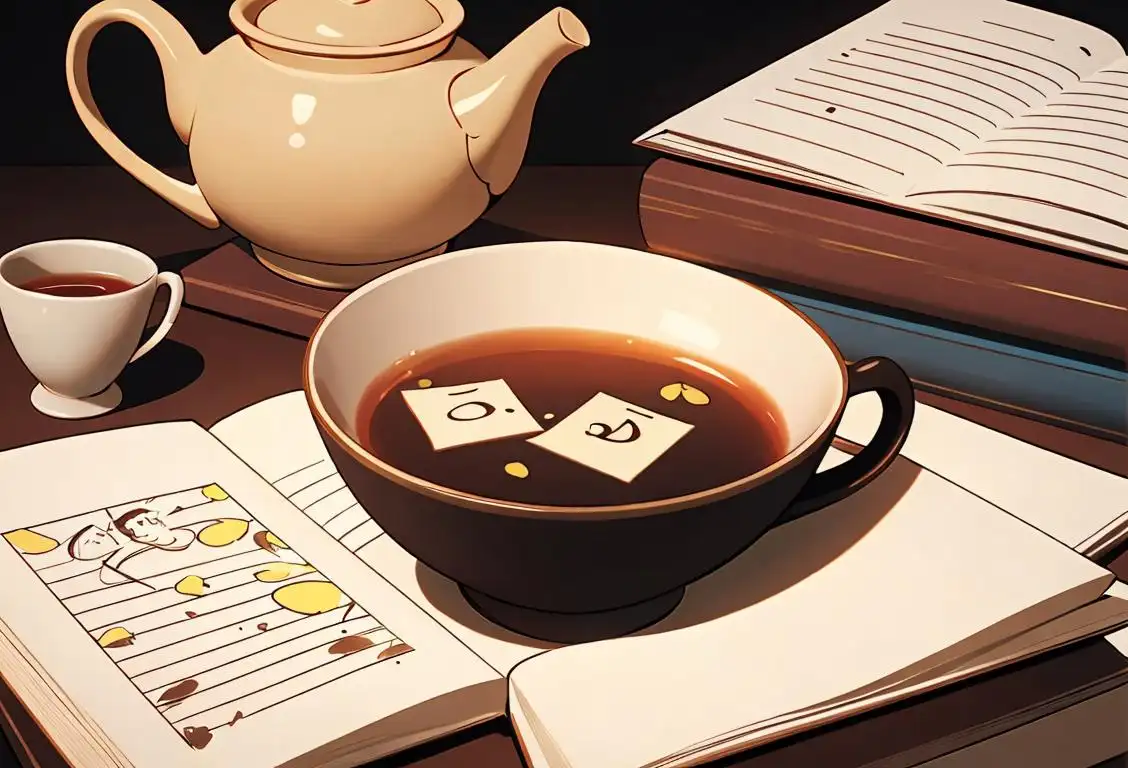National Play Dough Day

Get ready to squish, squeeze, and shape your way into National Play-Dough Day! This special day celebrates the beloved childhood favorite that has been molding young minds for generations. Whether you're a kid or just a kid at heart, National Play-Dough Day is the perfect excuse to dive into a world of colorful creativity and unlock your inner sculptor.
When is Play Dough Day?
It's national play dough day on the 16th September.
A Brief History of Play-Dough
Play-Dough, that squishy substance that has provided countless hours of amusement, has a history as colorful as its vibrant shades. It all began in the 1950s, when a schoolteacher named Kay Zufall stumbled upon a homemade concoction that was perfect for young children to mold and manipulate. Encouraged by her students' enthusiastic response, Zufall teamed up with her brother-in-law Joe McVicker to commercialize the product. They called it Play-Dough and it quickly became a sensation.
Initially, Play-Dough was sold exclusively to schools as a modeling compound. However, its popularity skyrocketed and demand grew among parents who recognized its potential as a creative and educational toy. In 1956, Play-Dough was made available for purchase in stores, packaged in iconic yellow cans. From there, its popularity continued to soar.
Internet Buzz about National Play-Dough Day
According to our extensive online research, we detected 19 mentions of National Play-Dough Day. The date that garnered the most attention was September 16, 2019. It seems that people just couldn't contain their excitement about this delightful holiday, taking to social media to share their love for Play-Dough and the joy it brings. From parents reminiscing about the fun they had as kids to teachers celebrating the educational benefits of molding and shaping, the internet buzz was nothing short of squish-tastic!
History behind the term 'Play Dough'
1933
Inception of a modeling compound
The year 1933 marked the inception of a simple modeling compound that would later become known as Play-Doh. Noah McVicker, an engineer at a soap manufacturing company called Kutol Products, developed a pliable substance originally intended for use as a wallpaper cleaner. It was a non-toxic, putty-like material that could easily remove soot and dirt from walls.
1930
The Invention of Play Dough
In 1930, Play Dough was invented by Noah McVicker and his nephew Joseph McVicker. Originally, it was meant to be a wallpaper cleaner. However, they soon discovered that children were using it to mold and shape various objects, leading them to realize its potential as a toy.
1933
The Birth of a Modeling Compound
In the year 1933, a young teacher named Kay Zufall stumbled upon the recipe for what would eventually become Play-Doh while she was attempting to create a safe and affordable modeling clay for her students. The original formula was made using flour, water, salt, boric acid, and mineral oil. This early version of the modeling compound didn't have the vibrant colors or the pleasant scent we associate with Play-Doh today.
1956
The Introduction of Play-Doh
In 1956, Play Dough was rebranded as Play-Doh by the toy manufacturer Rainbow Crafts. This name change was made to better appeal to children and reflect the playful and creative nature of the product.
1955
Transition to a Child's Toy
In 1955, Kay Zufall's nephew, Joseph McVicker, joined the family business and saw the potential for the modeling compound to be marketed as a children's toy. McVicker reached out to a local school supply store owner, who agreed to display Play-Doh in his shop. Initially sold in just one color—off-white—Play-Doh quickly gained popularity, primarily as a tool for teaching children proper penmanship.
1955
Children's entertainment potential recognized
Play-Doh's transition from an industrial product to a children's play material began when Kay Zufall, a nursery school teacher, discovered its tremendous potential as a modeling compound. Zufall contacted the McVicker family and struck a deal to market it as a toy rather than a household cleaner.
1958
The First National Play-Doh Day
In 1958, the first ever National Play-Doh Day was celebrated. This day was dedicated to the joy and creativity that Play-Doh brought to children around the world. It encouraged kids to enjoy the hands-on experience of molding and shaping the colorful dough.
1956
A new brand and packaging
In 1956, Play-Doh was introduced to the public as a brand-new toy. The packaging consisted of a simple yellow can with the prominent Play-Doh logo and a small snail symbol. Initially, Play-Doh only came in one color, off-white, and was sold in 1.5-pound tubs for $1.
1956
Rebranding and Expansion
The year 1956 marked a crucial turning point for Play-Doh. After facing some legal challenges, McVicker decided to rebrand the modeling compound under the name 'Play-Doh' rather than 'Rainbow Modeling Compound.' The decision to rename the product was inspired by a marketing event held at a local school. Play-Doh was soon expanded to include six vibrant colors, which added to its appeal and versatility as a creative toy.
2003
A Place in the National Toy Hall of Fame
Play-Doh solidified its status as a beloved and iconic toy when it was inducted into the National Toy Hall of Fame in 2003. This prestigious recognition demonstrated the lasting impact Play-Doh had on the toy industry and generations of children. Since its humble beginnings, over 2 billion cans of Play-Doh have been sold worldwide and it continues to be a staple in homes and classrooms alike.
2003
Play-Doh in the National Toy Hall of Fame
In 2003, Play-Doh was inducted into the National Toy Hall of Fame. This honor recognized the significant impact that Play-Doh had on children's playtime and its enduring popularity throughout the years. Play-Doh's ability to spark imagination and encourage artistic expression was highly regarded.
1957
Expansion of colors and success
Just a year after its introduction, Play-Doh expanded its color options to include red, blue, and yellow. The introduction of vibrant colors made the modeling compound even more appealing to children. Play-Doh's popularity soared, and it quickly became a staple in classrooms and households across the United States.
2015
Celebrating National Play Dough Day
Today, National Play Dough Day is celebrated on September 16th each year. It serves as a reminder of the timeless joy that Play-Doh brings to children. Whether it's sculpting miniature masterpieces or simply squishing and molding the dough, Play-Doh continues to captivate and inspire creativity in children of all ages.
2003
Induction into the National Toy Hall of Fame
In 2003, Play-Doh received a prestigious honor when it was inducted into the National Toy Hall of Fame. This recognition highlighted the significant impact Play-Doh had on children's playtime and its enduring presence in the toy industry. Even after several decades, Play-Doh continues to captivate the imagination of generations, fostering creativity and tactile exploration.
Did you know?
Did you know that Play-Dough was originally created as a wallpaper cleaner? Yes, that's right! In its early days, Play-Dough was used to remove soot and dirt from walls. It wasn't until Kay Zufall saw its potential as a toy that it became the beloved molding clay we know today.Tagged
fun creativity education childrenFirst identified
16th September 2015Most mentioned on
16th September 2019Total mentions
19Other days
Play Dough Day
School Nurse Day
Slime Day
Block Day
Punctuation Day
Teacher Appreciation Day
Grammar Day
Education Day
Teacher Day
Bird Day








